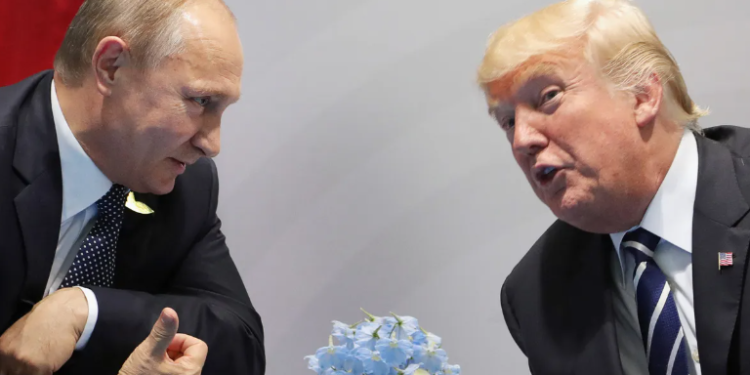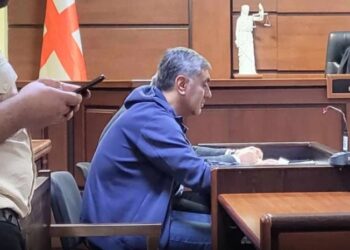In a significant shift in international relations, preparations are in progress for a face-to-face meeting between US President Donald Trump and Russian President Vladimir Putin. Russian Deputy Foreign Minister Sergei Ryabkov announced that the potential summit aims to address a range of global issues, including the ongoing war in Ukraine. This development marks a departure from previous Western efforts to isolate Moscow due to its actions in Ukraine.
The groundwork for this summit follows recent direct talks between US and Russian officials in Saudi Arabia. During these discussions, both nations agreed to work towards ending the conflict in Ukraine and improving diplomatic and economic ties. Notably, Ukrainian representatives were absent from these talks, leading to concerns from Kyiv and European allies about being sidelined in critical negotiations affecting regional security.
President Trump has indicated a willingness to meet with President Putin before the end of February. However, the exact date and location remain under discussion, with potential venues including Saudi Arabia and the United Arab Emirates. Both leaders have expressed a desire to normalize relations and collaboratively address pressing international challenges.
This initiative has elicited mixed reactions globally. Ukrainian President Volodymyr Zelensky has voiced concerns over the exclusion of Ukraine from these pivotal discussions, emphasizing that any decisions made without Kyiv’s involvement would be unacceptable. European leaders have also stressed the importance of including Ukraine in any peace negotiations to ensure a comprehensive and lasting resolution to the conflict.
As the international community closely monitors these developments, the proposed Trump-Putin summit could have profound implications for the future of Ukraine and the broader geopolitical landscape.
The announcement of a potential summit between US President Donald Trump and Russian President Vladimir Putin has elicited a spectrum of reactions from the global community.
United States:
Within the US, the proposed meeting has sparked debate across the political spectrum. Some officials view it as a strategic move towards resolving the prolonged conflict in Ukraine, while others express concern over possible concessions to Russia without adequate involvement of Ukrainian leadership.
Ukraine:
Ukrainian President Volodymyr Zelensky has firmly opposed any negotiations conducted without Ukraine’s direct participation. He emphasized that decisions about Ukraine’s future cannot be made without its involvement, reflecting apprehension that the summit could sideline Ukrainian interests.
European Union:
European leaders have expressed unease regarding the potential exclusion of both Ukraine and EU representatives from the talks. French President Emmanuel Macron and British Prime Minister Keir Starmer are reportedly coordinating efforts to influence President Trump’s approach, aiming to prevent a bilateral agreement that might undermine European security interests.
Russia:
The Kremlin has welcomed the prospect of direct dialogue between President Putin and President Trump. Kremlin spokesperson Dmitry Peskov described the potential discussions as “promising,” highlighting the importance of not obstructing the political will of the two leaders.
NATO:
Officials within NATO have underscored the necessity of a unified approach to the situation in Ukraine. There is concern that unilateral negotiations between the US and Russia could weaken the alliance’s collective stance and potentially embolden further Russian aggression in the region.
China:
China has expressed interest in playing a mediating role in the conflict, proposing a summit between the US and Russia and discussing potential peacekeeping efforts. However, this offer has been met with skepticism from both the US and Europe, given China’s close ties with Russia, which may compromise its position as a neutral facilitator.
In summary, the proposed Trump-Putin summit has generated a complex array of responses, reflecting the intricate geopolitical stakes involved. The situation continues to evolve as diplomatic engagements proceed.














